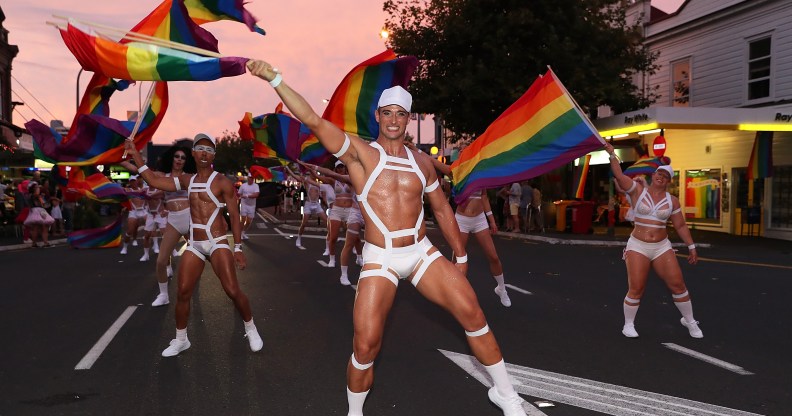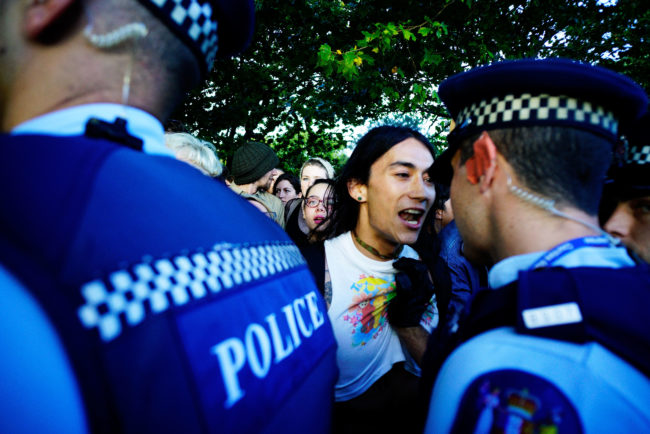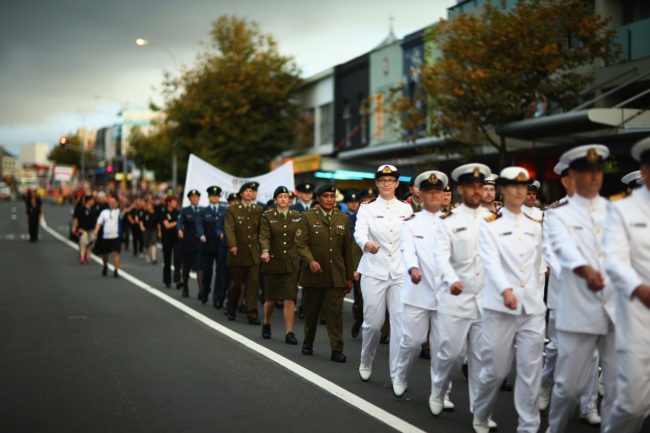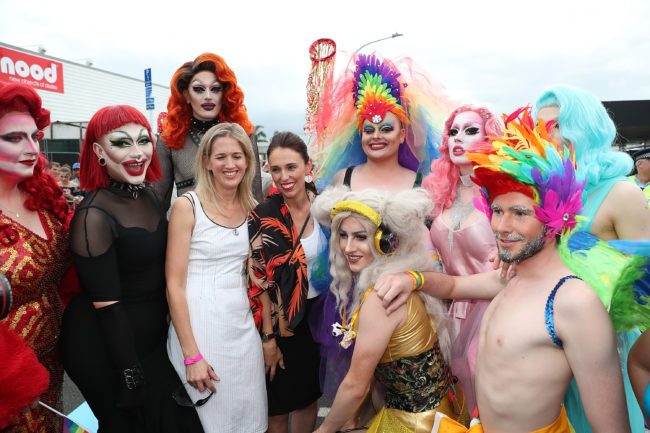Auckland Pride chaos after sponsor losses over uniformed police ban

The Auckland Pride Parade is part of the annual Pride Festival promoting awareness of gay, lesbian, bisexual and transgender issues and themes. (Fiona Goodall/Getty)
Auckland Pride organisers have caused major controversy in New Zealand after announcing that police officers in uniform will not be allowed to march next year.
The Auckland Pride Board, which is responsible for organising the local pride celebrations traditionally held in February every year, announced the decision on November 9.
“Whilst there is goodwill towards the NZ Police, as an institution they do not currently meet the degree of safety and awareness of intersectionality required by our rainbow communities,” the announcement stated.
The organisers’ decision echoes conversations around the participation of police in pride marches around the world. In the US, pride organisers in Wisconsin and Minnesota faced similar controversies after deciding to exclude LGBT+ police officers from marching in their uniforms.
“Auckland Pride values people over uniforms.”
In Canada, Pride Toronto banned police officers in uniform from taking part in the march in 2017 and 2018, but organisers recently announced the police will be able to apply to join the 2019 event following productive conversations on “policing and institutional power.”

Auckland Pride parade attendees confront the police in 2016. (Photo by Cam McLaren/Getty)
The Auckland Pride board later clarified that the decision to ban uniformed police was taken following meetings with the LGBT+ hui community, who reported “personal experiences of police mistreatment” that organisers said they “could not ignore.”
“Auckland Pride values people over uniforms,” the board wrote in a statement on November 15.
An additional meeting to discuss and explain the decision was called for November 18 in collaboration with the hui community.
“There are also gay policeman and we can’t just pretend that they don’t exist.”
— Rupert Everett
Reports about the gathering published by Radio New Zealand describe an “incredibly tense” atmosphere, with one of the attendees becoming particularly aggressive after he was asked to leave.
“He got out of his chair, he walked over to where I was sitting and stood over me screaming in my face that Māori asked for it when we were murdered by the police, shaking his hand in my face and yelling at me,” People against Prisons Aotearoa spokesperson Emilie Rākete told the news outlet.
“When I told him maybe he should consider just leaving he started to spit in my face,” she added.
Why are people protesting the Auckland Pride decision?
The controversy continued this week, as the New Zealand Defence Force withdrew their participation from the march in solidarity with the police, saying they “do not feel comfortable participating in an event that excludes other uniformed services.”
On November 20, several sponsors, such as Westpac bank and Vodafone, decided to end their backing of the event. The Rainbow New Zealand Charitable Trust (RNZCT), which sponsored non-profit groups’ participation in the march, denounced the Auckland Pride Board decision as “contrary to the wishes of the vast majority of the Rainbow Community.”

Participants take part in the Auckland Pride Parade along Ponsonby Road on February 22, 2014. (Phil Walter/Getty)
The pride parade founder Gresham Bradley called on Wednesday for the current board to be fired. Four members of the organisation have already expressed a lack of confidence in the Auckland Pride Board, and called for a special meeting.
Even British actor Rupert Everett weighed in. “There are also gay policeman and we can’t just pretend that they don’t exist. It feels to me that not making them wear their uniforms, is in denial. There’s so much violence towards us brewing up in places that we need to be friends with police as much as we can,” he told New Zealand publication Stuff.

New Zealand Prime Minister Jacinda Ardern became the first Kiwi leader to take part in the Auckland Pride Parade in 2014. (Fiona Goodall/Getty)
Auckland Pride Board Chair Cissy Rock said organisers remained open to working with institutions working towards becoming more inclusive.
“The Pride Parade is so much more than its corporate sponsors or Government institutions.” Black said in the latest statement addressing the ongoing controversy, adding: “True allyship by institutions to our community is listening to its affected members and compromising where possible.”

